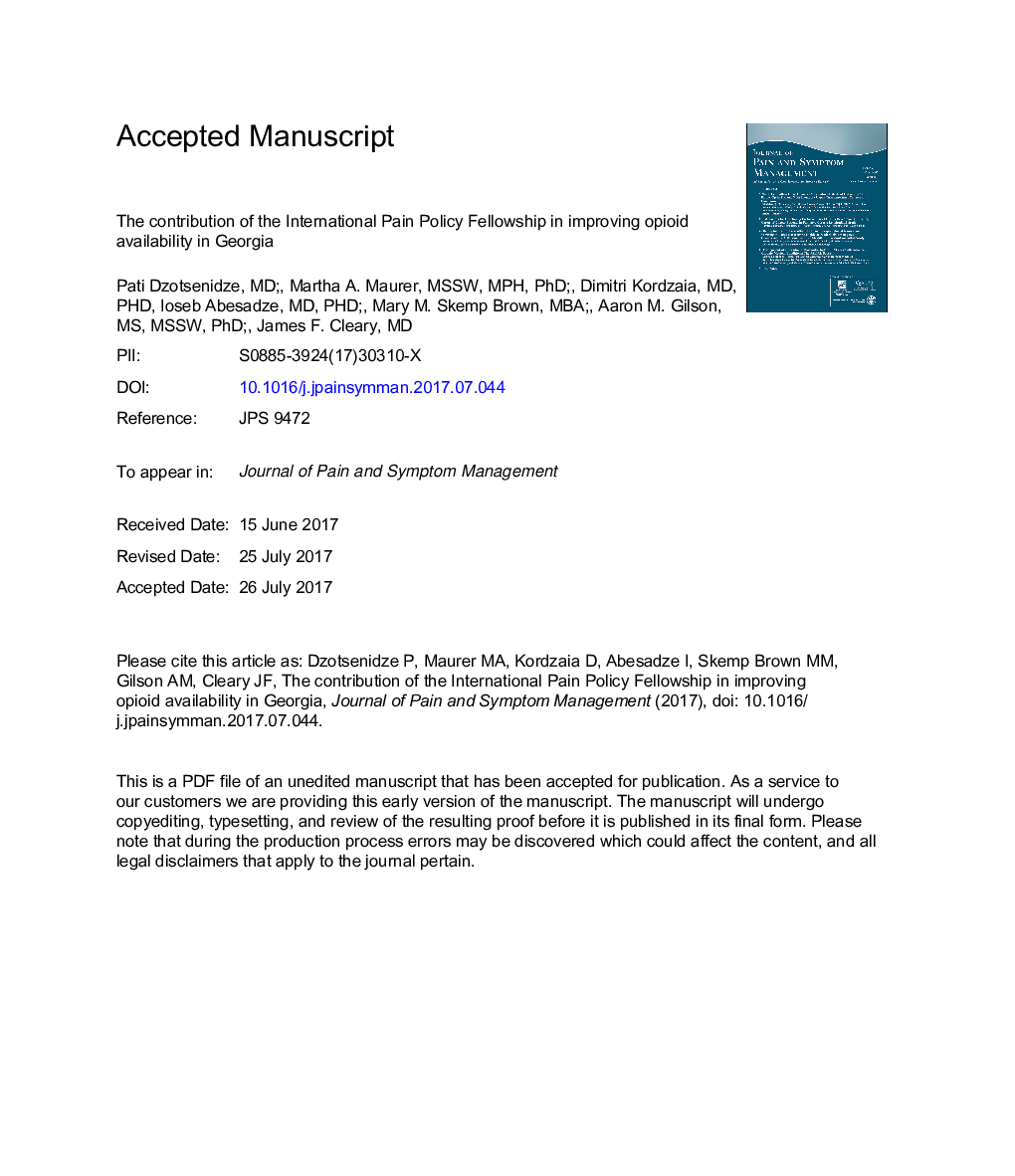| Article ID | Journal | Published Year | Pages | File Type |
|---|---|---|---|---|
| 5578157 | Journal of Pain and Symptom Management | 2017 | 30 Pages |
Abstract
In the Republic of Georgia, the incidence and prevalence of cancer are increasing, signifying a growing need for palliative care and pain relief, including with controlled opioid medicines. As a signatory to the Single Convention, the Georgian government has a responsibility to ensure the adequate availability of controlled medicines for medical purposes; however, the consumption of morphine is very low, suggesting a high occurrence of unrelieved pain. In Georgia, palliative care development began in the 2000s including the adoption of a policy document in 2005, the creation of the National Palliative Care Coordinator in 2006, and important changes in Georgian legislation in 2007 and 2008, which served to lay a foundation for improving opioid availability. In 2008, a neurologist from the Sarajishvili Institute of Neurology and Neurosurgery in Tbilisi, and member of the Georgia National Association for Palliative Care, was selected to be an International Pain Policy Fellow to focus on improving opioid availability. Working with colleagues, government officials, and international experts, the Fellow contributed to several improvements to opioid availability, such as 1) positive changes to opioid prescribing legislation, 2) clarification of legislative terminology regarding dependence syndrome, 3) initiating the importation of both sustained-release and immediate-release oral morphine, and 4) improvements in the availability of sustained-release morphine. Despite these varied achievements, morphine consumption remains low in Georgia relative to the estimated amounts needed. The Fellow is continuing to study and understand the barriers that are impeding physician's prescription of opioids and patient's acceptance of them.
Related Topics
Life Sciences
Neuroscience
Neurology
Authors
Pati MD, Martha A. MSSW, MPH, PhD, Dimitri MD, PhD, Ioseb MD, PhD, Mary M. MBA, Aaron M. MS, MSSW, PhD, James F. MD,
